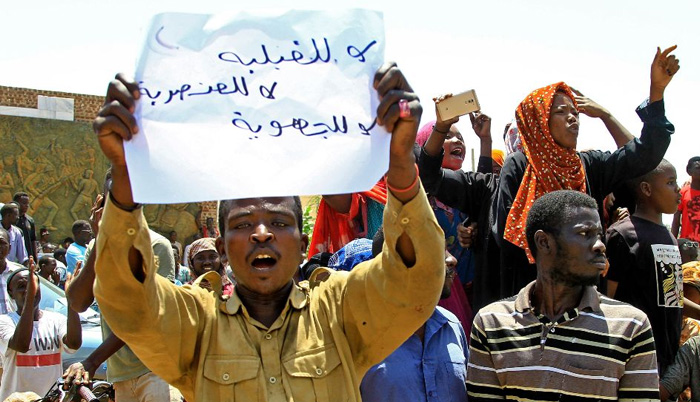![]() Home > Africa
Home > Africa
Hausas In Sudan: The Pilgrims' Descendants Fighting For Acceptance

AFP
![]() July 23rd, 2022 | 11:56 AM |
July 23rd, 2022 | 11:56 AM | ![]() 750 views
750 views
SUDAN
A demand by Sudan's Hausa community to be recognised as traditional custodians of some land in Blue Nile state has erupted into deadly violence.
Clashes broke out last weekend with members of another ethnic group that considers itself native to the area.
More than 100 mainly unarmed people were killed and thousands of Hausa have been driven from their homes, prompting angry demonstrations elsewhere in Sudan about their treatment. At least eight people have died in these subsequent protests put down by the police.
Who are the Hausa community?
Originally from West Africa, they have lived in Sudan for centuries, often settling there on the long and arduous land journey to or from Mecca for the Hajj. All Muslims who are able to do so should try to visit the holy city in Saudi Arabia at least once in their lifetime to perform the pilgrimage.
British colonisers in Nigeria were also responsible for the movement of many Hausas eastwards - when they defeated the defiant sultan of the Sokoto Caliphate in 1903, many of his followers and descendants eventually settled in Sudan.
Estimates about their population today vary wildly. At independence in 1956 it was thought to be 500,000 - and now ranges from three to 10 million out of Sudan's more than 44 million residents.
They tend to live and work in central Sudan in agricultural schemes and farms along Sudan's rivers - but most cities around the country have Hausa communities.
Their influence on Sudanese culture cannot be underestimated - and can be smelt at open air markets and eating places across the country. This is because their Agashe dish is a beloved street food: grilled kebabs of beef, lamb or chicken seasoned with spices and peanuts and served with raw onions and lime juice.
The first woman to sing on national radio in Sudan in 1942 was Aisha al-Falatiya, a Sudanese Hausa singer who became hugely popular with her love songs - as well as those with political themes, especially in the run-up to independence. She also toured the continent during World War II entertaining Sudanese troops fighting for the British.
Yet Hausas sometimes find it hard to gain acceptance within Sudanese society.
"The Hausas have long struggled with alienation… and they tired of being called foreigners," says researcher Mohamed Ahmed, an expert on communities in Sudan with West African ties.
Why is there friction?
It is linked to land.
During colonial times, the British created one of the world's largest irrigation schemes between the Blue Nile and White Nile. When the Gezira project started in 1911, slaves were largely used as free labour to mainly grow cotton for the industrial mills of north-west England.
Source:
courtesy of BBC NEWS
by Zeinab Mohammed Salih | Journalist
If you have any stories or news that you would like to share with the global online community, please feel free to share it with us by contacting us directly at [email protected]